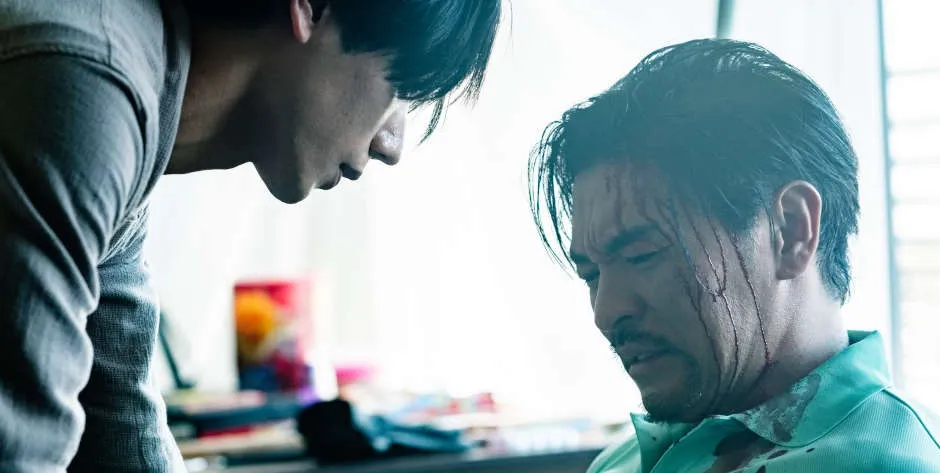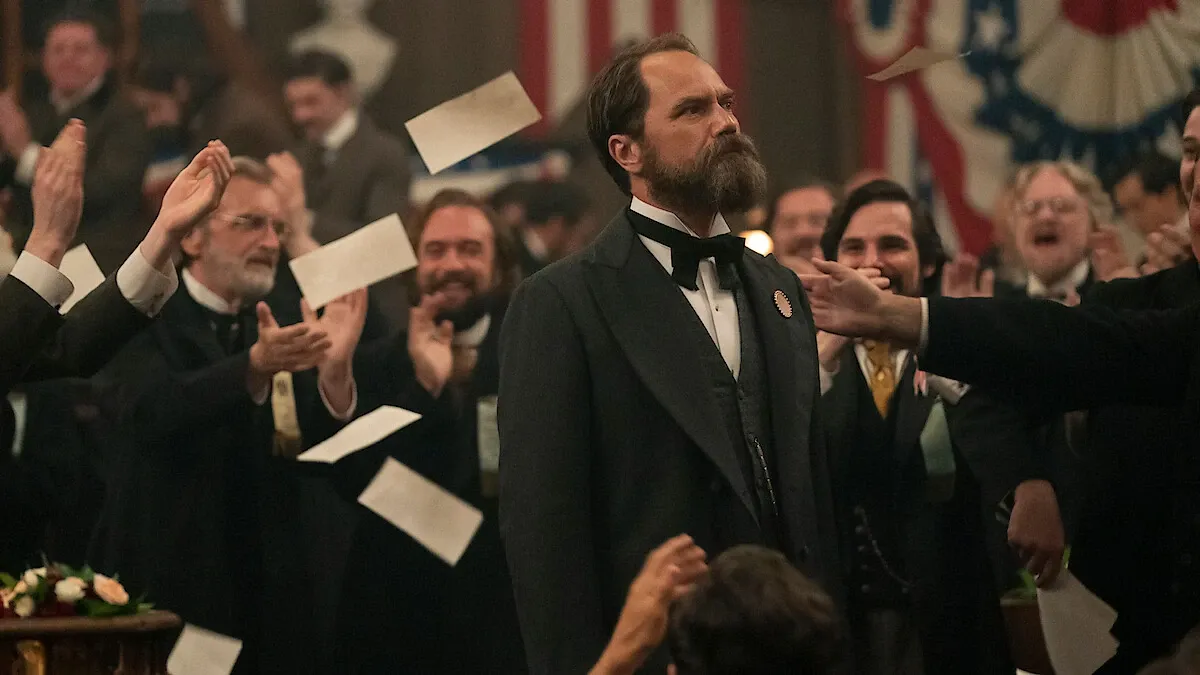(BEARTOWN premieres on HBO Nordic October 18. Full series viewed for review.)
Adapted from the book by Fredrik Backman, BEARTOWN is a well made and deftly acted drama about the collapse of a small community, which suffers from a slavish devotion to the source material. Premiering on HBO Nordic this October, the series comes with a major pedigree and backing of the prestigious channel. But while the production itself impresses, at five hours long, there’s just not enough material to sustain interest throughout the entire series, even as the series cuts corners on Backman’s dense prose.
Set in the fictional town of Björnstad, the series follows the newly arrived family of Peter, Kira, Maya, and Leo, as they settle into their new old lives in the community where Peter grew up. A former hockey prodigy, Peter left the sleepy village years ago to join the NHL, but injuries cut his career short, leaving him without a purpose. Uprooting his family to coach the local hockey team, Peter finds himself at odds with the insular habits of his childhood circles. Meanwhile, his daughter and son struggle to integrate into their new school, where the local hockey players walk like gods amongst mortals.
When the star player of the junior team, Kevin, rapes Maya during a party, the entire town turns inside out as groups of friends and colleagues begin circling their wagons to protect themselves – regardless of who gets hurt in the process. As Maya and Kira seek justice, Peter finds himself torn between protecting his daughter while risking ostracizing his entire family from their home.

Attempting to simultaneously depict the dynamics of small-town hierarchy, personal regrets of people moving into middle-age, the generational trauma inflicted by parents on their children, and the fallout of heinous crimes that lingers forever, BEARTOWN is admirably ambitious in scale. Which doesn’t mean that it’s altogether successful, but there’s much to love in something that swings for the rafters, even as it stumbles.
What works is the casting. Ulf Stenberg, Aliette Opheim, Miriam Ingrid, and Oliver Dufaker are terrific in their parts, lending the series the deep gravitas required. Finnish actor Tobias Zilliacus is suitably menacing as Kevin’s father, all icy glares and terrible intentions, but it’s a part drawn extremely thin. I haven’t seen him in many features before, but based on BEARTOWN, he’s a wonderful actor searching for a better role. As Maya, Ingrid gives a powerful performance of a young girl horribly wronged, who has to reconcile with the future as an entire community turns against her. She succeeds by being heartwrenching and authentic without a single misstep in the whole series.
Stenberg, leading the cast as Peter, is likewise strong. In lesser hands, Peter would be an unlikeable mess; someone quickly disregarded as a waste of space as he struggles with his failings to protect his family. But Stenberg imbues the part with broken nobility and earnestness. We understand Peter’s grief, even as we disagree with how he deals with it. Opheim, supporting the family as Kira, has a far less showy role, but I couldn’t imagine the series working without her.

Less impressive is the pacing, which, even at its best, is glacial. Backman’s source material is just 300 pages in length, and despite the myriad of characters, it maintains a brisk a pace throughout. The series captures the melancholy and longing beautifully in the cinematography and performances, but the story meanders when it should push, and it mistakes stalling for tension. The opening and the final episode are the strongest BEARTOWN gets, and they’re among the finest Nordic Noir has to offer. Cutting an hour from the series would amount to losing nothing of value.
The treatment of the rape at the center of the story stumbles as well. Some moments are grand, like how the series treats the revelation and the family’s reaction to it, while others, like an eventual townhall meeting, are painted too broadly and simplistically. BEARTOWN admirably tries to showcase all sides to how people arrive at different, even insidiously stupid conclusions, but it fails to pin down where the series itself stands. To its credit, it foregoes a neat denouement, instead opting for something more humane and honest. We are like figure skaters, tracing our paths from one generation to the next.
Despite these issues, BEARTOWN is more impressive than it is aggravating. In attempting to cover as much of Backman’s prose, it misses the chance to depict the nuances of his lived-in characters and world. But in turn, the series offers tremendous acting, which captures subtly and maturely the poisonous aspects in modern society. With a little bit of editing, it would be a better series.
Even so, BEARTOWN is a terrific example of Noir done right. Bleak, but intensely humane.













